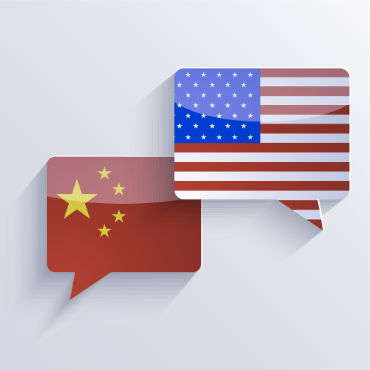A U.S.-China high-tech trade war?

Steve Kelman worries that mutual suspicions could lead to much bigger problems.

In the wake of the U.S. government indictments of Chinese army officers said to be part of a cyber-hacking, there are warning signs that the Chinese government may be creating problems for U.S. high-tech firms selling in China, which if it continues risks a nasty trade war.
There is a perfect storm of factors that makes the Chinese government suspicious of U.S. IT. The first is that it can give Chinese people access to foreign information and communication channels. Both Google and Gmail, which operate out of Hong Kong after the company left mainland China to protest website blocking, have been periodically unstable and/or unavailable inside China. In the weeks before the 25th anniversary of the Tiananmen Square massacre in early June, the two sites became just about completely unavailable. As of this writing, two weeks after the anniversary, both are still unavailable, except for Gmail accounts set up as a smartphone app.
Second, of course, the Chinese government would like to foster development of their domestic IT industry, with national champions replacing foreign (read U.S.) firms.
Third is the Chinese anger over the U.S. indictments, and worry about U.S. cyber-espionage in China in the wake of the Edward Snowden revelations.
Since the indictments, statements or rumors about Chinese restrictions on U.S. tech firms have multiplied. So far the only officially announced restriction has been a clause in an obscure Chinese government procurement spec for energy-saving PCs and laptops, which stated that “all computer products are not allowed to install Windows 8 operating system.” (The link to this slightly weird announcement is http://www.zycg.gov.cn/article/show/242846 -- it is in Chinese, but GoogleTranslate will translate for you.)
However, there have been rumors, discussed in a detailed New York Times article, about restrictions on purchases of IBM servers by (state-owned) Chinese banks, on government purchases of Cisco equipment, and even on government agency use of Western consulting firms. (All these actions or rumored actions involve only government agencies and maybe state-owned companies, but it is assumed that large private companies would follow the government’s lead if asked, unless there are strong technical or quality reasons not to.)
During a recent trip to China, I had a conversation about this with a U.S.-educated Chinese entrepreneur who also is a senior advisor to the government on tech issues. He presented the only issue as being Chinese worries about the security of U.S. products and the danger of U.S. spying -- arguing the risk was high that U.S.-manufactured products would have back doors allowing access to internal data.
This was, of course, the worry Americans have had about Huawei tech gear in the United States, which has led to that firm being excluded from U.S. government business. The worries seem more justified on our end, frankly, because Chinese firms, even private ones such as Huawei, are under much more government influence and direction. I stated to my friend that even if the U.S. government asked Microsoft to routinely install back doors in Windows8, the company would likely protest and resist -- if for no other reason to reduce the risk of lost sales if such back doors were revealed. (Microsoft and some other U.S. tech firms make source code available to customers who want to check for back doors.)
He then retreated to a different argument: that Windows8, installed in Chinese machines, would automatically send back information to Microsoft in the United States, where the U.S. government could then access it. This accusation also appeared on a Chinese TV report on Windows8. I am not a techie, but I don’t understand what useful data would be available to Microsoft from Windows8 users unless the data were stored on a Microsoft cloud, which is a separate issue.
I hope the Chinese government will reconsider steps that could easily produce a trade war, since the ability to export high tech is very important to the United States. I spoke with a U.S. tech industry official very knowledgeable about U.S.-China tech issues, and he said that he believed Chinese anger over the cyberspying indictments was a very important part of the reactions that have recently taken place. If so, that is actually good news: tempers can cool, but a policy aimed at keeping U.S. companies out of the Chinese market for reasons of economic advantage is harder to reverse.
Stay tuned.


